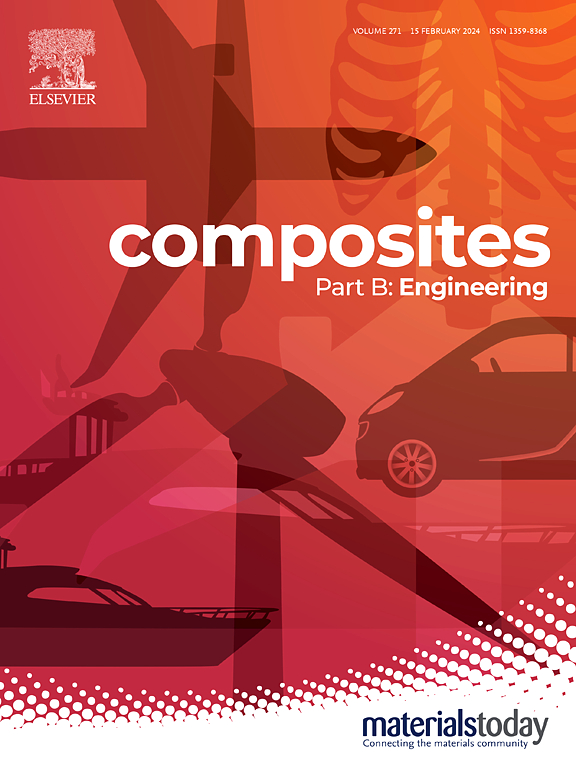Optimization of interfacial adhesion and mechanical performance of flax fiber-based eco-composites through fiber fluorination treatment
IF 12.7
1区 材料科学
Q1 ENGINEERING, MULTIDISCIPLINARY
引用次数: 0
Abstract
Natural fibers, such as flax, are more and more used as biobased reinforcement for eco-composites manufacturing but their natural polarity makes them incompatible with most polymers (mostly dispersive). Nowadays, treatments such as torrefaction are known to reduce the polarity of natural fibers and thus increase the mechanical performance of the reinforced composites. However, these treatments could harm fibers and limit the gain in performance. Thereby, the use of a controlled fluorination treatment allowed, via the grafting of fluorine on the fiber surface, to decrease the polarity of these fibers while maintaining an equivalent Young's modulus and limiting the reduction of at break performance to just ∼30 %. Therefore, by incorporating these fluorinated reinforcements in an epoxy matrix and by mechanically testing these composites, not only superior mechanical performances to those reinforced by raw fibers, but also superior to torrefied fiber-reinforced composites were measured, e.g.: the flexural modulus increased by 25 % after fluorination vs. 10 % after torrefaction and the flexural strain at break was enhanced by 10 % after fluorination vs. decrease by 35 % after torrefaction).
求助全文
约1分钟内获得全文
求助全文
来源期刊

Composites Part B: Engineering
工程技术-材料科学:复合
CiteScore
24.40
自引率
11.50%
发文量
784
审稿时长
21 days
期刊介绍:
Composites Part B: Engineering is a journal that publishes impactful research of high quality on composite materials. This research is supported by fundamental mechanics and materials science and engineering approaches. The targeted research can cover a wide range of length scales, ranging from nano to micro and meso, and even to the full product and structure level. The journal specifically focuses on engineering applications that involve high performance composites. These applications can range from low volume and high cost to high volume and low cost composite development.
The main goal of the journal is to provide a platform for the prompt publication of original and high quality research. The emphasis is on design, development, modeling, validation, and manufacturing of engineering details and concepts. The journal welcomes both basic research papers and proposals for review articles. Authors are encouraged to address challenges across various application areas. These areas include, but are not limited to, aerospace, automotive, and other surface transportation. The journal also covers energy-related applications, with a focus on renewable energy. Other application areas include infrastructure, off-shore and maritime projects, health care technology, and recreational products.
 求助内容:
求助内容: 应助结果提醒方式:
应助结果提醒方式:


